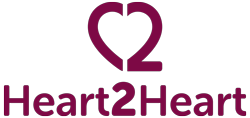Medicines for Heart Children
Download this information sheet as a PDF
The aim of this information sheet is to provide parents with information and advice about medicines for heart conditions.
As part of the management of your child’s heart condition they may be prescribed medications. The kind of medicines they need will depend on their heart condition.
This factsheet provides information on the most frequently used medicines for the treatment of paediatric heart conditions. Should you have any questions about prescribed medicines, we advise that you talk to your child’s pharmacist or cardiologist at the NHS specialist centre that provides your child’s medical care.
Giving Medicine
Your child may need to take several medicines, some at specific time intervals. Many parents find it useful to use a medicine chart or schedule.
To make it easier for children to take medicines they are available in different forms such as capsules, tablets, or liquids. Ask your child’s cardiologist or pharmacist to advise on alternatives if your child is finding it difficult to take their current prescribed form.
If your child spits or vomits after medication has been administered, they may not have received their required dosage. If you are unsure of how much medication has been ingested, we strongly recommend that you seek advice from your child’s cardiac care team to ensure you are not overdosing the medicine.
At School
If your child needs medicines during the school day, it is important to work with the school to draw up a health care plan. A health care plan is a document that helps to ensure that the school has all the necessary information they need and have all the appropriate systems in place to help your child manage their medicines.
It is important to make the school aware of any side effects of the medication that may affect your child, for example:
- diuretics can make your child need the toilet urgently and frequently
- anticoagulants can limit your child’s participation in contact sports
The Medicines
Below are some generic medicines that are commonly used to treat symptoms associated with heart conditions:
Diuretics
In congestive heart failure the body tends to retain fluid. Diuretics help the kidneys to get rid of excess fluid so that the heart can work more efficiently.
Diuretics will make your child need the toilet more frequently and more urgently. Vomiting or diarrhoea can make a child on diuretics dehydrated. If this happens, talk to your cardiac liaison nurse or your GP as soon as possible.
Angiotensin Converting Enzyme (ACE) Inhibitors
These medicines reduce blood pressure by dilating the blood vessels. Lower blood pressure means the heart does not have to work so hard to pump blood around the body.
Antiarrhythmics
These medicines are used to treat arrhythmias (a fast or irregular heart beat). Different antiarrhythmic medicines are used depending on the specific type of arrhythmia.
Anticoagulants
Anticoagulants help to prevent blood clots by thinning the blood. The most common anticoagulant is warfarin.
It is important to monitor the blood regularly to make sure children are getting the correct dose of anticoagulants. This can be done using blood test monitors called INR machines. Your child’s cardiologist or haematologist can give you more information about this procedure.
Children on anticoagulants should carry a record of their usual dosage and the result of their last blood test. This will make sure they receive the correct treatment in an emergency.
Children on anticoagulants are advised to avoid contact sports and other situations where they may be at high risk of injury. If a child is already taking anticoagulants then they should avoid taking any medicines containing aspirin as this can increase the risk of bleeding.
Beta-blockers
These medicines are used for a number of reasons: some are used to control high blood pressure, whilst others are used to treat arrhythmias.
Medicine Interactions & Side Effects
It is important that you ask your child’s cardiologist or the hospital pharmacist about any interactions with other medicines, supplements and side effects that you should be aware of.
It may be helpful for your child to carry a record of all the medicines they are on. In an emergency situation, this can be given to medical staff so that they are aware of the medicines your child is already taking. Medic Alert or similar items of jewellery are another way of alerting medical staff to health conditions, allergies and medicines being taken. For more information visit:
www.medicalert.org.uk
If you think your child is suffering a reaction to a medicine, or is showing any other symptoms that may be related to their medicines, contact your GP or cardiologist immediately.
General tips
- Always read any instructions that come with medicines.
- Do not use expired medicines.
- Store medicines at the correct temperature and out of reach of small children.
- Make a note on a calendar or in your diary if you need a repeat prescription. Allow extra time in case your local pharmacist does not usually stock the medicine you need.
- Keep a note of the contact details of your paediatric pharmacist in case you have any queries about the medicines. GPs or local pharmacists may not know how certain heart medicines should be given to children. If this is the case, put them in touch with the hospital pharmacist.
Evidence and sources of information for this CHF information sheet can be obtained at:
(1) The Health Conditions in Schools Alliance. London: HCSA; 2017. Available at:
www.medicalconditionsatschool.org.uk
(2) UK. Children with special educational needs and disabilities (SEND). London: GOV.UK; 2017. Available at:
www.gov.uk/children-with-special-educational-needs/extra-SEN-help
About this document:
Published: June 2014
Reviewed: May 2022
To inform CHF of a comment or suggestion, please contact us via info@chfed.org.uk or Tel: 0300 561 0065.









